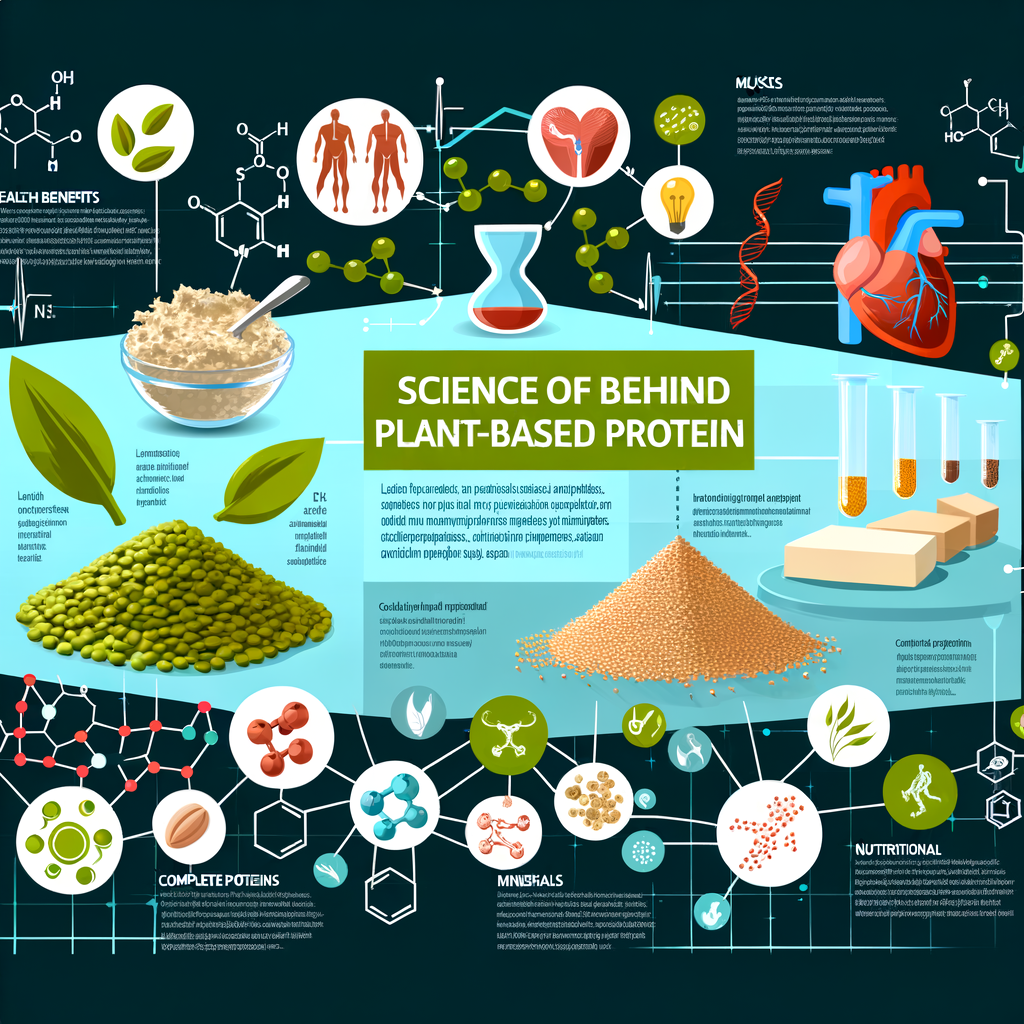The Science Behind Plant-Based Protein
Introduction: In recent years, a shift towards plant-based diets has taken the world by storm, driven by health, environmental, and ethical considerations. As plant-based eating becomes more mainstream, understanding the science behind plant-based proteins is crucial. This blog post dives into the comparison between plant-based and animal proteins, the health implications, and the rising popularity of plant alternatives. By the end of this post, you’ll gain insights into how plant-based proteins stack up against their animal counterparts and tips for incorporating them into a balanced diet.
Understanding Plant-Based Proteins
What Are Complete Proteins?
One of the perennial concerns for those considering a plant-based diet is obtaining “complete” proteins. Complete proteins provide all nine essential amino acids the human body needs for various functions but cannot produce on its own. While many believe that plant-based proteins fall short in this area, research suggests otherwise. Although not all plant proteins offer a full amino acid profile in one serving, a diverse and balanced diet can easily fulfill amino acid needs.
The Myth of Amino Acid Deficiency
Historically, vegetarians and vegans have been advised to combine plant foods, like rice and beans, to meet their protein requirements. However, a 2019 study indicated that those following vegan and vegetarian diets can obtain adequate protein and amino acids without meticulous food pairing. The fear of amino acid deficiency is largely exaggerated, focusing unnecessarily on the details of meal planning. Instead, consuming a variety of plant-based foods ensures nutrient diversity, making it simple to get all necessary amino acids over time.
Nutritional Considerations and Challenges
The Role of Vitamin B12
While plant-based diets offer a myriad of health benefits, they can fall short in certain nutrients, particularly vitamin B12. This essential nutrient supports brain health and red blood cell formation, with deficiency leading to severe consequences. Unlike proteins, achieving adequate B12 levels through plant-based food alone is challenging. Vegans should consider fortified foods or supplements to fulfill this nutritional requirement.
The Downside of Processed Plant Foods
The rise of plant-based protein alternatives, like faux meats and cheeses, has made transitioning to a plant-based diet easier and more convenient. However, these foods often come with caveats. They can be highly processed and may contain high levels of sodium and saturated fats, which might be counterproductive to health goals. Moderation and careful selection of less processed options are crucial for maintaining the health benefits of a plant-based diet.
The Health Benefits of Plant-Based Proteins
Weight Management and Disease Prevention
Plant-based diets have been linked with healthier weight management and decreased risk of type 2 diabetes. They are often lower in calories and fats, while being rich in fiber and essential nutrients. This nutrient profile aids in maintaining a healthy weight and stabilizing blood sugar levels. Additionally, these diets have associations with longer life spans, which might stem from their influence on weight and metabolic health.
The Truth About Soy
Soy, a staple in many vegetarian diets, has long been subjected to misinformation regarding its impact on hormones and cancer risk. Current research refutes these claims, demonstrating that soy foods do not disrupt hormone balance nor increase cancer risk. A 2020 study even correlated soy consumption with a reduced risk of breast cancer in women. Therefore, soy can be safely enjoyed as a nutrient-rich component of a plant-based diet.
Considerations for Individuals with Dietary Restrictions
Allergies and Food Sensitivities
While plant-based diets boast numerous benefits, individuals with specific food allergies or intolerances must proceed with caution. Soy and nuts, common protein sources, are major allergens. It’s essential for individuals with such sensitivities to explore alternative protein sources, like legumes, quinoa, and seeds, to maintain a balanced diet without triggering allergic reactions.
Digestive Concerns
The increased fiber content of a plant-based diet can pose challenges for those with digestive issues, such as irritable bowel syndrome (IBS). Managing fiber intake and gradually incorporating plant-based foods can help minimize discomfort. For those with more sensitive digestive systems, working with a healthcare professional to create a personalized plan is advisable.
Conclusion
Summary of Key Points
This exploration of plant-based proteins highlights the potential benefits and challenges of transitioning to a plant-based diet. Complete proteins are achievable through diverse plant foods, and while vitamin B12 supplements may be necessary, the health benefits often outweigh the limitations. Awareness of processed food content and accommodating dietary restrictions are crucial for optimizing the benefits.
Call to Action
If you found this article insightful, consider subscribing to our newsletter for more content on health and nutrition. Share this post with friends and family who are curious about plant-based diets, and leave a comment below with your thoughts and experiences.



